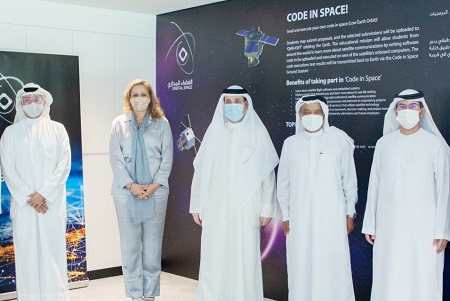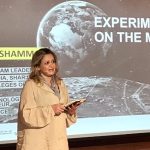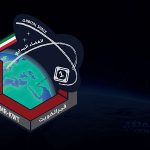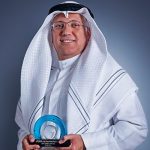The Earth station will provide ideas and innovations to launch new services and products related to satellites and space-technology applications.
 Dubai Silicon Oasis Authority (DSOA), the regulatory body for Dubai Silicon Oasis (DSO), an integrated free zone technology park; Mohammed bin Rashid Space Center (MBRSC) and Orbital Space, have inaugurated an earth station for educational satellites named Code in Space Satellite Ground Station.
Dubai Silicon Oasis Authority (DSOA), the regulatory body for Dubai Silicon Oasis (DSO), an integrated free zone technology park; Mohammed bin Rashid Space Center (MBRSC) and Orbital Space, have inaugurated an earth station for educational satellites named Code in Space Satellite Ground Station.
Located at the Dubai Technology Entrepreneur Campus (Dtec), the entrepreneurship centre in the MENA region wholly owned by DSOA, the station will support Orbital Spaces Code in Space programme, which offers students and technology enthusiasts an opportunity to develop and test software code on a live satellites onboard computer.
The stations inauguration is the result of MBRSCs and Orbital Spaces joint efforts to provide students with the opportunity to interact with satellites orbiting Earth, and learn the basics of managing these satellites and its technology. The Code in Space Satellite Ground Station will also spark ideas and innovations that contribute to launching new services and products related to satellites and space technology applications.
The inauguration event was attended by Theyab Al-Rashidi, Kuwaits Consul General in Dubai and the Northern Emirates, Dr Juma Al Matrooshi, Deputy CEO of DSOA, Engineer Salem Humaid Al Marri, Assistant Director-General of MBRSC, Engineer Adnan Al Rais, Programme Manager of Mars 2117 at MBRSC, Dr Bassam Alfeeli, Founding Partner and General Manager of Orbital Space, and Dr Nicolas Petio, Executive Director of Applied Research, Innovation and Entrepreneurship at the Higher Colleges of Technology.
Commenting on the stations inauguration, Theyab Al-Rashidi said: Every Gulf and Arab nation is proud of the UAEs achievements in the fields of space and technology. The new Code in Space Satellite Ground Station builds on a series of Emirati successes, and we are confident that it will lead to more. Arab youth play a key role in shaping the future of the Arab countries, and this satellite ground station supports their scientific and educational journey and advancement.
Dr Juma Al Matrooshi added: “For the first time in the Arab world, students, entrepreneurs, and enthusiasts will be able to learn coding for space in practice to develop and test software and algorithms on satellites in orbit around Earth. This will give them the opportunity to not only conceptualize, but also implement their projects and test their effectiveness, qualifying a new generation of experts in satellite control. The inauguration of the Code in Space Satellite Ground Station is a new accomplishment for Dtec, equipping programmers and science students in the region to achieve a quantum leap from theory to practice. This new station will also enable our youth to master this technology and play a key role in a sector that has contributed to advancing humanity, by finding practical solutions to critical issues, most prominently climate change, monitoring Earths temperature, and natural disasters, in addition to the services it provides in communication, innovation, and exploration.
Engineer Adnan Al Rais stated: MBRSC continues to forge strategic partnerships that support our various projects and programmes. The inauguration of the Code in Space Satellite Ground Station is a significant step in support of space programmes, and contributes to the achievement of a priority objective for the Mars 2117 project strengthening the space industry sector through empowering entrepreneurs to establish companies that operate in the space and space advanced technologies sectors.
Dr Bassam Alfeeli commented: Orbital Space, a startup established in August 2018 with MBRSCs support, aims to enable students in Arab countries to use space technology by providing access to space orbits around Earth. This will be realized through student projects for educational space missions that are actually sent to space to build capabilities and gain expertise in this field. The Code in Space programme is one of our flagship projects, aimed at making space accessible to all. The collaboration with MBRSC and DSOA represented a unique opportunity for us to work towards achieving common goals.
Alfeeli clarified that Orbital Space, for the first time in the Arab world, is providing everyone with the opportunity to access space by offering services for designing, programming, building, testing and operating CubeSats for students and enthusiasts, helping them learn about ways to build satellites and enabling them to conduct tests and educational processes related to space sciences.
The Code in Space programme is witnessing major participation by students from various elite universities, including Khalifa University, the Higher Colleges of Technology, Kuwait University, the American University of the Middle East, the Sabah Al-Ahmad Center for Giftedness and Creativity, the University of Bahrain, and Al Hekma International School Bahrain.
Dtec is the Middle Easts largest technology hub and co-working space, home to more than 1,000 startups from 75 countries. It aims to link investors with startups, enabling entrepreneurship in general, promoting a culture of investment in startups, and supporting young entrepreneurs.















































































